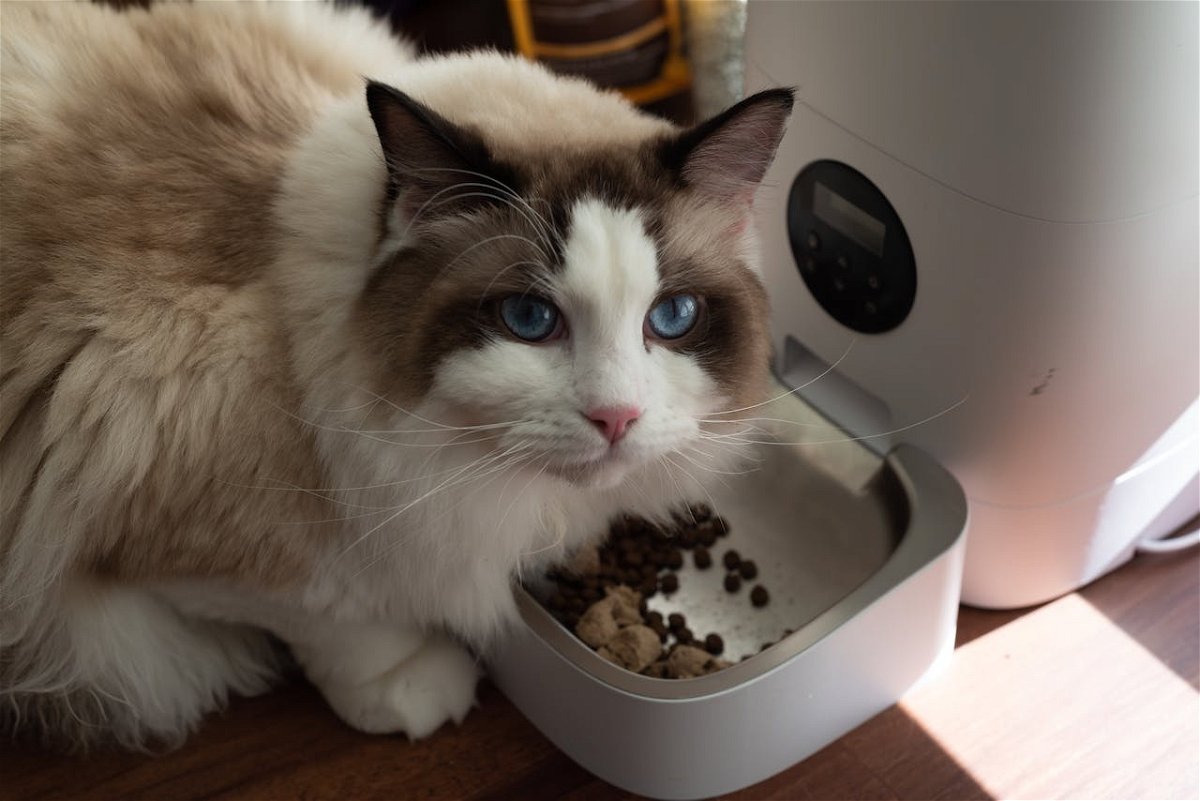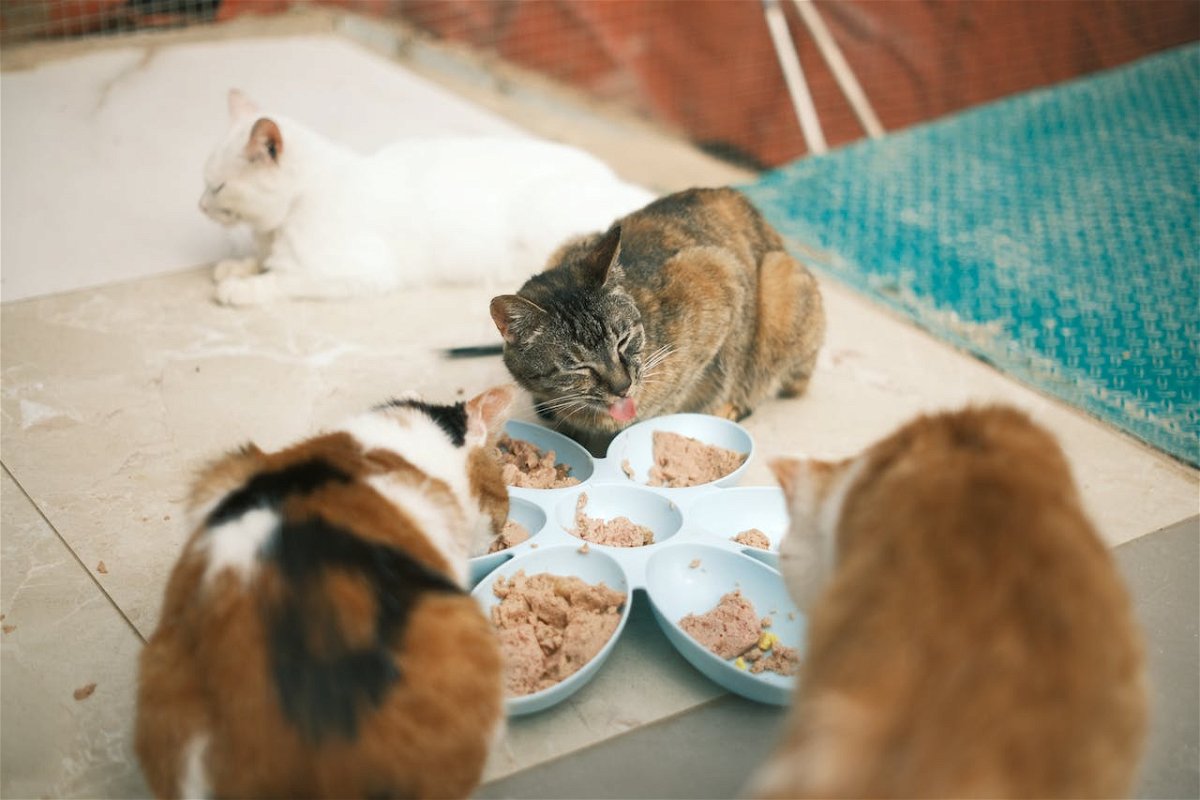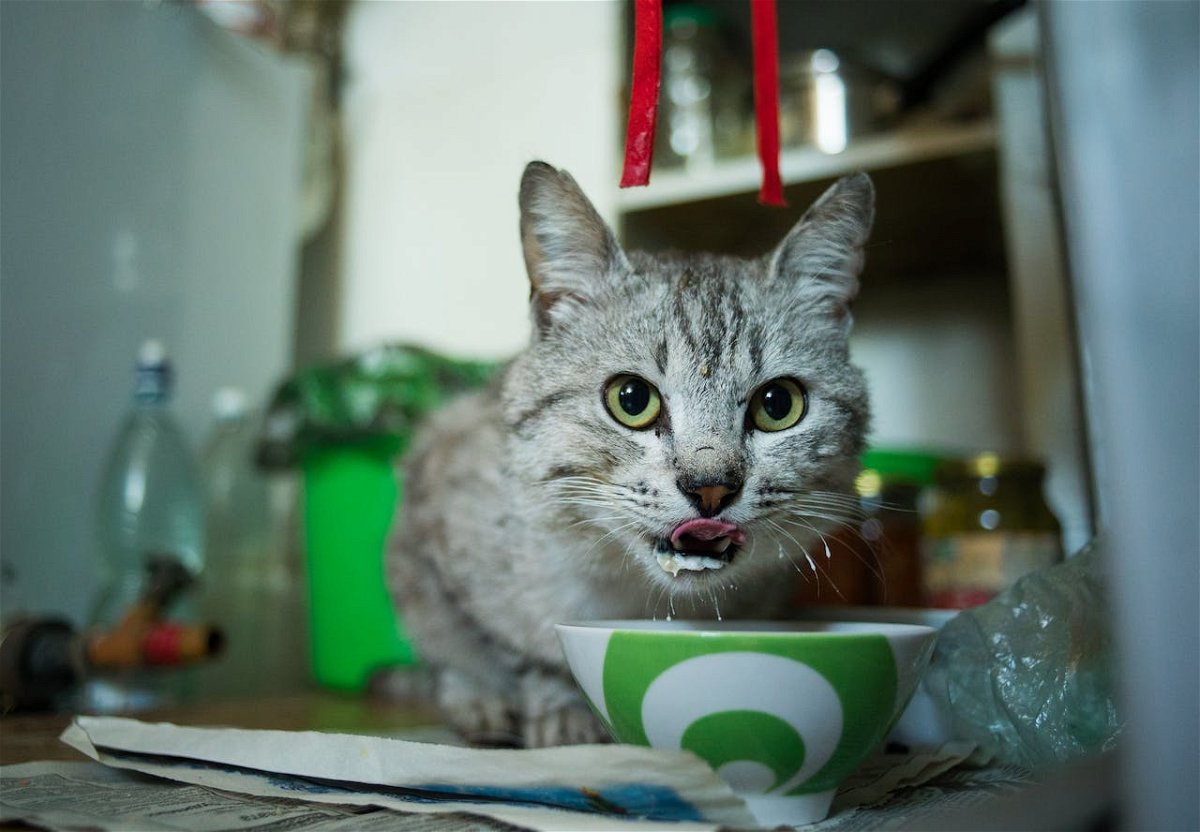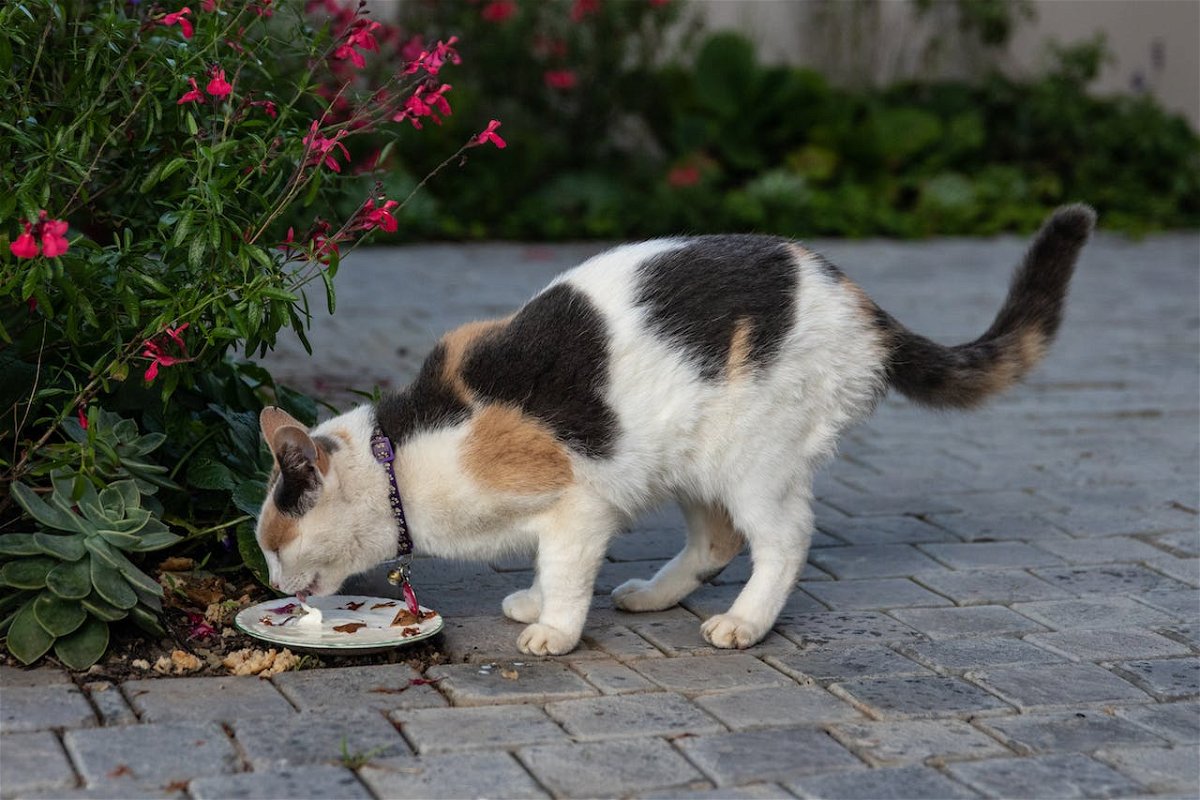We're an affiliate
We hope you love the products we recommend! Just so you know, we may collect a share of sales or other compensation from the links on this page at no additional cost to you. Thank you if you use our links, we really appreciate it!
The life expectancy of our modern-day cats is about 12 – 18 years, depending on several factors including their living condition, breed, nutrition, and overall care.
As a responsible pet parent, it is your profound duty to ensure your cat’s lifespan is maximized by sustaining them with high-quality foods for healthful living.
So, what should you feed a cat to live longer?
In this guide, we have unpacked the best foods and nutritious goodies you can give your feline friend to make them live a longer, healthier, and rewarding life.
How Food Can Affect a Cat’s Lifespan
The saying ‘you are what you eat’ applies to all living creatures, including cats. This means there’s a very big connection between the cat’s diet and their well-being including lifespan.

Cats who get optimal nutrition are highly likely to live longer without suffering serious health issues.
You can prevent many feline diseases such as diabetes and arthritis just by giving your furry friend the right foods.
Striking a balance between the quality of your cat’s food and practicing portion control will also help keep the cat’s weight in check.
A well-nourished kitty who gets enough vitamins and minerals from high-quality foods will build a robust immune system that can fend off diseases and infections.
Optimal nutrition also supports the cat’s digestive system to ensure they break down and absorb maximum nutrients for better living.
Cat food with high fiber content can promote a functioning gastrointestinal tract and prevent digestive issues such as constipation.
Why Protein Is Essential for Cats
With so many food options in the market today, you may wonder why it’s important to nourish your kitty with high-quality protein.
By their very nature, cats are opportunistic carnivores, which means they will hunt and kill prey for food in the wild.
In addition to the animal-based protein, the prey’s organs usually contain body fats, minerals, and water, making proteins one of the essential nutrients of a carnivore’s diet.
Because of their meat-eating background, housecats need an animal-sourced that supply them with enough proteins, which are complex mixtures of amino acids.
Their bodies have evolved to ingest specific amino acids such as taurine and arginine that are already found in meat.

Experts estimate that most cats rely on about 30% of their dietary calories to come from animal-based proteins, their most important energy source.
These proteins are needed to fuel their bodies and nervous systems, ensure a working immune system, and help in hair growth and coat health.
Unlike other mammals, the cat’s liver enzymes are constantly involved in breaking down complex protein molecules for fuel and maintenance of glucose levels in the body.
Cats who are not fed dietary protein, even when they receive other energy nutrients e.g. carbohydrates, may soon break their muscle tissue to meet their amino acid demands.
Animal proteins are preferable for cats over the plant-based variety because the former contains proteins, amino acids, vitamins, and fatty acids all of which are vital for a cat’s wellbeing.
Unlike dogs and humans, our feline friends are unable to synthesize certain amino acids and vitamins such as niacin, vitamin D, and A making them reliant on animal tissue for nutrition.
The most common foods with high protein content for cats include turkey, beef, fish, chicken, lamb, salmon, tuna, mackerel, and rabbit.
On top of these well-known protein sources, you may also find meat byproducts or meat meals in your cat’s food packaging.
The most common sources of plant-based proteins for cats include rice protein concentrate, soybean meal, corn gluten meal, and wheat gluten.
Best Foods for A Cat’s Lifespan
To increase your cat’s lifespan and help them thrive in health, it’s crucial to consider their main foods and watch specific ingredients.
The following are some of the best foods you can consider to help your cat live a longer, healthier, and fulfilling life:
1. High-quality Commercial Cat Foods
Store-bought cat foods are in plenty, but it’s always prudent to choose the best brands to ensure your cat is well nourished.
Make sure to research various top brands and read through the ingredient statement to see what makes up the cat food.
It’s also a good idea to go through the guaranteed analysis, specific nutritional purpose, and feeding guidelines when comparing different brands.
Consider premium brands that use animal-based proteins as the main ingredient without too much processing and avoid foods with excessive fillers and artificial preservatives.
2. Homemade Diets
A protein-rich, balanced, home-produced cat food can provide the best nutritional profile to keep your cat healthy and strong.
The other benefit of making your own cat food is that you have the opportunity to craft the end product in a way your cat loves without using sweeteners, fillers, and preservatives
It’s important to consult an animal nutritionist before making your own cat food to get advice on what to include and what to avoid.
3. Fresh Raw Foods
While great caution should be kept when feeding your cat commercial raw food, some cats can greatly benefit from these fresh meats.
Two major advantages of giving raw food with digestive enzymes are that your feline can reinforce their immune system and restore normal bowel movements.
The major concern about commercially prepared raw pet food is the risk of high contamination levels from pathogens such as salmonella and E. coli.
If you prefer to go the raw route, we strongly recommend choosing fresh produce and working in a clean and hygienic space for your cat’s well-being.
4. Clean Drinking Water
Chronic Kidney Disease is a serious threat to mature and senior cats being the number two cause of feline fatalities in the US after cancer.

It is therefore important to keep your cat hydrated to keep them healthy by supporting proper kidney and urinary tract functions.
You can improve your cat’s water intake by setting up various water stations at different points across your house.
Most cats don’t like drinking water from a ‘boring’ bowl, so try to make their water points as appealing as possible by using those trickling water fountains.
The other way to step up your cat’s water game is by giving them high-moisture foods (canned foods).
In the wild, cats get almost 80% of their water from eating prey, so using wet foods is a great way to keep them hydrated at home.
Lethargy, loss of appetite, sunken sockets, dry mucous membranes, and repeated bouts of constipation are some of the signs of dehydration in cats.
Watch Your Cat’s Weight
Just like in humans, obesity is a common problem in house pets and it can lay the backdrop of many health problems e.g. diabetes, which can take a few years from your cat’s lifespan.
Make sure to manage your cat’s food intake by practicing portion control and taking your cat out for physical exertion. Free feeding and a sedentary lifestyle can be great incentives for obesity.
The amount of food your cat needs depends on their energy demands and how many calories are in their daily diet.
Growing kittens, pregnant cats, and those with high activity often require foods that are high in calories for a steadfast fuel supply.
Conclusion
The nutritional choices you make for your feline friend have a great direct impact on their health and longevity.
Cats are obligate carnivores, so they should be fed animal-sourced meats for proteins and other nutrients.
There are many food options you can choose for your little tiger at home, just make sure it has high protein content and other kitty-specific vitamins and minerals.
Homemade, raw, and premium cat foods are all good enough to nourish your kitty for longevity as long as they are well-balanced with high-quality elements.
Laura is the founder of Furs'n'Paws. She is a also a pet writer and expert with more than 20 years of experience of working with dogs and cats. She developed a very strong love for animals at a young age. Her passion led her to establish a thriving pet sitting and dog walking business in Dubai. As an expert in pet training, behavior, and nutrition, Laura is committed to helping pet owners and pet lovers by offering high-quality information on a wide range of topics.



No responses yet